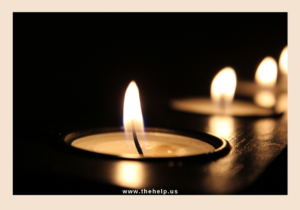
We’re in year 3 of the pandemic, and even as things seem to be returning to normal, there is always the threat of another storm brewing ahead (a new outbreak that could light the surge of another variant). During the past few years, we’ve all felt some form of loss as a result of the pandemic: the loss of livelihood, the painful loss of a loved one, and the loss of the “normal” way of life.
While a lot of us have moved on in our own little way, there is just enough ambiguous loss for us to be feeling grief once in a while. What even is ambiguous loss? It is “a loss that occurs without a significant likelihood of reaching emotional closure or a clear understanding. This kind of loss leaves a person searching for answers, and thus complicates and delays the process of grieving, and often results in unresolved grief.”
For us, we’ve had to move on from the losses of the past few years in order to feel some semblance of being back to normalcy and be able to feel like we’re in the “old normal” again. But without closure, sometimes grief seeps in.
We all know the stages of grief: denial, anger, bargaining, depression, and acceptance. However, grief doesn’t really follow a linear order. And it can be triggered by even the little things, a scent, a photo, a memory…
Sometimes, we cycle through the stages and sometimes we skip and jump right through them. Being able to cope looks different for everybody and it also takes time. And that’s ok, not everyone has the same timeline or the same journey. The important thing is to keep working towards acceptance.
There are a few other things that you can do as you work your way through grief and loss, here are some of them:
Honor the loss – acknowledge the person, the event, the experience, or the thing you are grieving over. Some of us like to power through making efforts to forget the memories. Rather than avoiding the memory of the loss, honor it by participating in rituals, ceremonies, etc. This is why the lockdown was rather hard on those who were grieving. It took away the ability of people to gather and participate in funerals, wakes, and cultural ceremonies that honor the life and death of lost loved ones.
Express your emotions – it begins with identifying your triggers and knowing how to cope when they come. Stop avoiding or denying the loss. You won’t be able to wish it away or prevent it from ever happening. What’s done is done. The only thing left is to get to the point of acceptance and start healing.
Ask for help – don’t let pride get in the way. When you need it, and you are going to need it eventually, ask for help. It could be from a friend, a close relative, a support group, a therapist, or a counselor. And when others need it – be there to support them through their grief.
Have you started on your healing journey? How are you doing so far? Remember to work smart and be a blessing to someone today. Stay safe and healthy!
Written by Jaie O. TheHelp